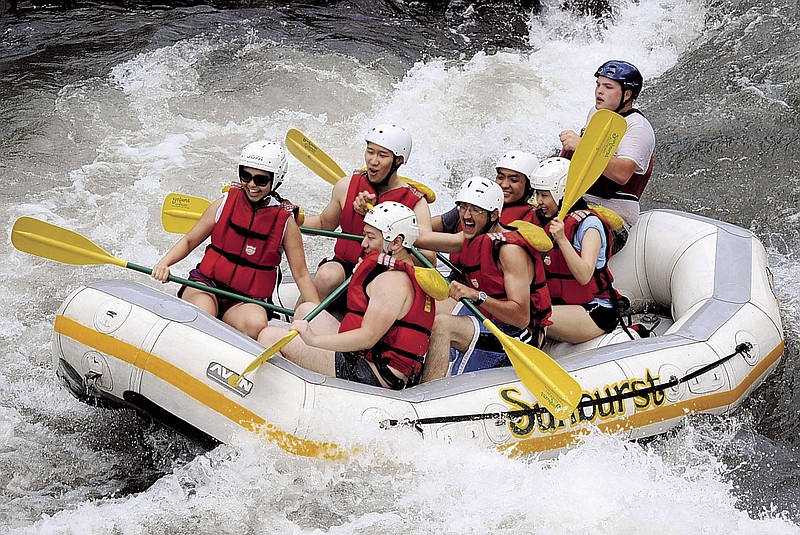Nearly 250,000 people annually float the Ocoee River in rafts. Some pay fees for the opportunity to cover it with a myriad of outfitters. Others kayak down the stream on their own.
But now many wonder if that will continue past this decade.
The setting along U.S. 64 has been bustling since 1977. The resulting business has placed thousands of dollars in Polk County coffers.
The influx of activity came about in an unusual way: In 1976 the Tennessee Valley Authority, which had in 1939 acquired a power system wooden flume through which the water was diverted, shut down the funnel temporarily for reconstruction. Suddenly the river flowed through the riverbed.
Whitewater adventurers were quick to take notice. They brought rafts and kayaks, battling rapids created by the flow over the rocks..
Later realizing that the experience would end once the flume work was complete, they sought continued days on which to utilize the stream.
Eventually a plan was put in place with TVA for that purpose. River users would repay the U.S. Treasury for the loss of power caused by the diversion back into the river bed in exchange for the usage during warmer months of the year.
The current agreement is nine years away from closure. Water enthusiasts are wondering if it will be extended.
"Something will have to be done long before that time (when the current agreement ends)," said David Brown.
The executive director of Knoxville-based Outdoors America Association notes that while the end seemed a long time away several decades back, there's anxiety as it approaches.
Outdoors America is a blanket organization representing 500 affiliated outdoor businesses spread across the country. These include Ocoee rafting firms as well as recreational offerings like dude ranches.
"The companies have to plan their investments," Brown reasoned.
When the "middle section" of the Ocoee was granted added water activity days, rafting companies obtained permits to lead visitors down the stream. They were required to fulfill safety and other requirements.
Later the 1996 whitewater Olympics were held on another section of the river. This lead to additional rafting activity on what's known as the Upper Ocoee.
The resulting cash flow from the operations supports campgrounds, restaurants, motels and other area venues. Despite rock slides along U.S. 64, which follows the river, and resulting clearances completed earlier this year that delayed activity, business is strong.
The traditional part of the Ocoee, the "middle section." remains the most popular among Nantahala Outdoor Center clients, according to Cathy Kennedy, rafting director for the firm. But the Upper Ocoee carries a sizable amount of interest, she said.
NOC, based in Wesser, N.C., was one of the early outfitters in the aea. It originally focused on the Nantahala River, later venturing into the Ocoee. The business has an outpost at Ocoee as well as on a number of other Southeastern rivers it serves.
TVA now allows 116 days a year for activity on the "middle" section, with about 35 reserved on the upper, Olympic section.
Kennedy said the outfitters are working on a proposal for the Ocoee, hopeful that action there will continue.
